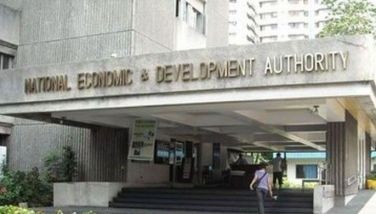Within arm’s reach
These days, almost everything is within arm’s reach. While sipping your coffee in the morning, you realize you want a pair of black sneakers. You grab your phone to purchase it. The next day, you are already wearing those sneakers.
How convenient is it to live in a time where, with just a few taps, your favorite item can be delivered right to your doorstep? In most cases, you don’t even need to be at home when the item arrives. In fact, it has become a common practice for many online delivery services to just hand over the item to whoever resides at the stated address. Your siblings, your parents, or perhaps even your helpful neighbors are ready to accept the item for you.
In the face of modern conveniences, our laws exist to safeguard the balance between convenience and legal compliance. Similarly, in taxation, our courts continue to consider the differing roles of taxpayers and tax authorities in ensuring that due process of law is not compromised for the sake of convenience.
Well-established in our existing jurisprudence is the responsibility of every citizen to pay their fair share of taxes. In fact, the wisdom for such a responsibility is not an unfamiliar concept in taxation.
The Supreme Court (SC) has consistently emphasized in its numerous decisions that “[t]axes are the government’s primary means to generate funds needed to fulfill its mandate of promoting the general welfare and well-being of the people.”
While the responsibility of taxpayers is clearly defined, it should be noted that tax authorities are likewise responsible for ensuring that due process of law is strictly complied with. After all, the real essence of taxation is the promotion of the common good.
The SC had an opportunity to revisit taxpayers’ right to due process of law in its July 2023 decision. In the said case, the petitioner delved into the validity of assessment notices based on its non-receipt of the Notice of Informal Conference (NIC), the Preliminary Assessment Notice (PAN), and the Final Assessment Notice (FAN). The NIC and the PAN were served upon the taxpayer’s employee, whose position was “Client Service Assistant.” On the other hand, the FAN was personally served upon the taxpayer’s reliever security guard, who was not an employee of the taxpayer.
Section 228 of the Tax Code states that when the Commissioner of Internal Revenue or his duly authorized representative finds that proper taxes should be assessed, he shall first notify the taxpayer of their findings. The taxpayers shall be informed of the law and the facts on which the assessment is made. Otherwise, the assessment shall be void.
Further, Section 3.1.4 of Revenue Regulations (RR) 12-99 provides that personal delivery of the FAN must be acknowledged by the taxpayer or their duly authorized representative. According to the SC, “[w]hile Sections 3.1.1 and 3.1.2 of Revenue Regulations 12-99, which govern the NIC and the PAN, respectively, bear no similar qualifications for personal delivery as those found under Section 3.1.4, the Court deems it more in keeping with the spirit of the law that these should likewise be served only upon the taxpayer or, especially for juridical entities, their duly authorized representatives.”
Ruling in favor of the taxpayer, the SC held that those who received the assessment notices were not the authorized representatives of the taxpayer.
The SC further justified its decision by providing the very reason behind such a stringent rule, to wit: “Unless the recipient possesses a certain degree of authority or discretion, they would be unable to grasp the gravity of the service of an assessment notice and the potential financial impact it would have [on] the taxpayer they purport to serve and represent. This is especially true for juridical entity taxpayers who can only act through its officers and employees, and who would otherwise be prejudiced by such recipient’s simple ignorance.”
Finally, the SC stressed the importance of rendering an assessment that fails to strictly comply with the due process requirements set forth in Section 228 of the Tax Code and Revenue Regulations 12-99 as void and shall produce no effect.
An important thing to note in the above-cited case is that, even if it seems like everything is within arm’s reach, convenience should never come at the expense of someone’s rights.
Dana Mae Clemencia is a Supervisor from the Tax Group of KPMG in the Philippines (R.G. Manabat & Co.), a Philippine partnership and a member firm of the KPMG global organization of independent member firms affiliated with KPMG International Limited, a private English company limited by guarantee. The firm has been recognized as a Tier 1 in Transfer Pricing Practice and in General Corporate Tax Practice by the International Tax Review. For more information, you may reach out to Dana Mae Clemencia or Manuel Salvador III through ph-kpmgmla@kpmg.com, social media or visit www.home.kpmg/ph.
- Latest
- Trending






























